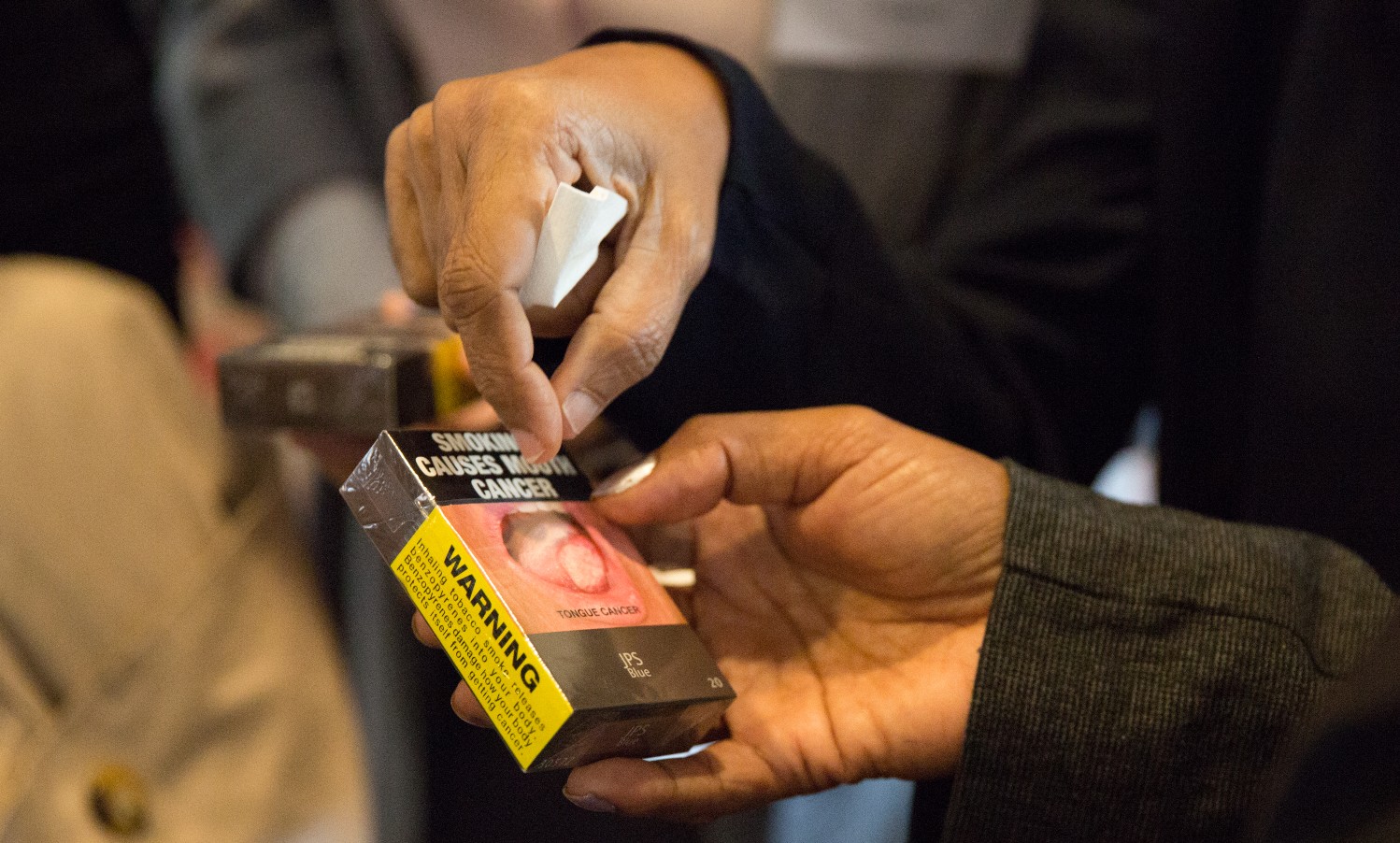
Tobacco plain packaging’s role as an effective and legally justified public health measure was on full display last week when government officials, civil society representatives and tobacco control experts from around the world gathered online for the McCabe Centre’s plain packaging workshop.
A total of 66 people from 35 different countries registered for the four-day virtual workshop, which focused on the recent World Trade Organization (WTO) Appellate Body ruling in favour of Australia’s world-first tobacco plain packaging laws. The decisive ruling ended a decade worth of legal challenges against the measures.
Through a series of presentations, interactive group discussions and expert panels, the workshop unpacked the Appellate Body’s decision that upheld a previous WTO panel ruling that tobacco plain packaging is not more trade-restrictive than necessary to achieve its public health objectives and does not infringe on international trade and intellectual property laws. Participants and guest speakers also described their own experiences advancing plain packaging, and discussed what this most recent ruling means for other countries looking to follow in Australia’s footsteps.
The workshop kicked off on 30 November 2020 with a welcome address from Dr. Adriana Blanco Marquizo, Head of the World Health Organization (WHO) Framework Convention on Tobacco Control (FCTC) Secretariat, who spoke about how recent events should encourage other FCTC parties to pursue plain packaging.
“This is indeed a major victory for public health and tobacco control,” Dr Adriana said. “Implementing plain packaging, in combination with graphic health warnings, is an important part of a comprehensive tobacco control policy.”
The first day of the workshop also featured a representative from the Australian Department of Foreign Affairs and Trade, who described their experience defending Australia’s plain packaging laws against legal challenges, and a representative from the Australian Department of Health, who provided an overview of how Australia’s plain packaging laws were implemented. WHO Technical Officer Benn McGrady also gave an overview of global progress towards plain packaging, including the 16 other countries that have implemented similar laws.
“For countries implementing tobacco plain packaging today, there is no need to re-invent the wheel. We’ve seen approaches used in Australia be used in other countries since, and be effective in other countries,” Benn said.
Subsequent sessions were led by the McCabe Centre’s Manager of Prevention Suzanne Zhou and Regional Coordinator for Asia Evita Ricafort, who analysed plain packaging from a legal perspective. Australian intellectual property law expert Professor Mark Davison also gave an inspiring presentation urging governments not to be scared off by unsubstantiated claims of trademark infringement from the tobacco industry.
The workshop wrapped up on 3 December with two keynote panel discussions on lessons for implementing and defending plain packaging laws, and resources available for countries. Expert panellists included Rob Eckford and Patricia Lambert of the Campaign for Tobacco-Free Kids, Andrew Black of the FCTC Secretariat’s Development Assistance program, Cancer Council Victoria Manager of Tobacco Control Policy Kylie Lindorff, and representatives from three WHO regional offices: Dr William Onzivu (Africa), Dr Fatimah El-Awa (Eastern Mediterranean) and Lily Joung-eun Lee (Western Pacific).
Throughout the workshop, participants engaged in lively discussions about the status of tobacco control initiatives in their countries, worked together on practical exercises, and asked presenters for guidance on implementing plain packaging and addressing other tobacco control issues locally. They raised several important issues around gathering evidence to support plain packaging, securing the capacity to implement and defend plain packaging laws, engaging different sectors throughout the process and how these lessons may be applied to other unhealthy products.
Though there were clearly challenges to overcome, many participants felt encouraged by Australia’s legal victories and expressed their eagerness to pursue plain packaging laws as part of tobacco control measures in their countries. For attorney and McCabe Centre alumna Sheryl Dennis Wright, the workshop coincided with the Jamaican government tabling a comprehensive tobacco control law she helped draft.
"I am tremendously grateful to have been a participant at this workshop," Sheryl said. "The McCabe Centre team as well as the expert presenters are to be commended for their delivery and proficiency in breaking down technical legal concepts related to the landmark decision and its regulatory implications, and equipping participants of FCTC parties to practically execute the lessons learned in relation to policy development and defending domestic legal challenges.”
The McCabe Centre thanks the Australian Department of Health, Cancer Council Victoria, and the WHO FCTC Secretariat for their support with the workshop, which was conducted as part of the McCabe Centre’s work as the WHO FCTC Knowledge Hub on Legal Challenges.
For more information about the WTO Appellate Body ruling, read Suzanne Zhou’s technical summary or watch the McCabe Centre’s joint webinar with Melbourne Law School.
Tobacco plain packaging resources are also available from Cancer Council Victoria, the Campaign for Tobacco-Free Kids and from the McCabe Centre via the WHO FCTC Knowledge Hub on Legal Challenges.